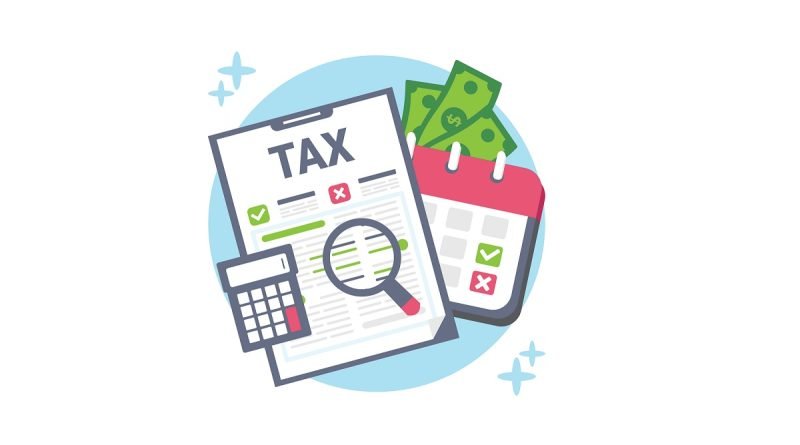3 IT Acts You Need to Know for Term Insurance Benefits
Individuals may claim tax saving schemes under Section 80C of the Income Tax Act for payments made toward life insurance policies, fixed deposits, superannuation/provident funds, university fees, and the construction/purchase of residential properties.
Taxes are an essential component of our nation, accounting for a significant percentage of the government’s revenue, which is used to provide some fundamental requirements to residents. Individuals who earn more than a specific amount are required to pay taxes according to the current income tax slabs.
While these taxes might be tough on a taxpayer’s bank account, the government also gives various measures via which one can save tax by tax saving schemes. Tax deductions may assist a person in decreasing their taxable income, decreasing their total tax burden, and saving money on taxes. The deduction that one is entitled to be determined by a variety of circumstances, with varying limitations established for various reasons.
Tax Deductions Under Section 80C
Section 80C of the Income Tax Act allows for tax deductions on a variety of payments, with both individuals and Hindu Undivided Families eligible. Eligible taxpayers may claim deductions under Section 80C up to Rs 1.5 lakh per year, which is a mixture of deductions permitted under Sections 80 C, 80 CCC, and 80 CCD.
Some of the most common investments that qualify for this tax break are listed below.
- Amount paid for life insurance plans (for self, spouse, or children)
- Contribution to a superannuation/provident fund
- Tuition fees are paid for a maximum of two children’s education.
- Payments paid toward the building or purchase of a home
- Payments made towards a fixed deposit with a minimum term of five years
Tax Deductions under Section 80D
Section 80D of the Income Tax Act allows individuals to deduct monies paid toward health insurance coverage premium. This comprises payments paid to a Central Government health plan on behalf of a spouse, children, parents, or self.
When paying for insurance for a spouse, dependent children, or self, a deduction of Rs 15,000 may be claimed; however, this amount increases to Rs 30,000 (Union Budget 2017) if the individual is above the age of 60.
Finance Minister Arun Jaitley delivered the Union Budget 2022 on February 1, 2022, including a few modifications to the tax discounts available to older folks. The income tax deduction ceiling for older persons has been doubled to Rs.50,000 under Section 80D for medical expenses.
Individuals and Hindu Undivided Families are also eligible for this deduction, provided the contribution is paid in a method other than cash.
Tax Deductions under Section 80E
Section 80E of the Income Tax Act guarantees self-education does not constitute an extra tax burden. This provision allows taxpayers to deduct the interest paid on loans taken out to pursue higher education.
This loan may be used by the taxpayer himself/herself or to fund the education of a ward/child. This deduction is only available to individuals with loans from qualified charitable organizations and financial institutions eligible for tax advantages.
Some More Important Tax-Saving IT Acts
Tax Deduction under Section 80LA
Deductions under Section 80LA are available to Scheduled Banks with offshore banking units in Special Economic Zones, entities of International Financial Services Centers, and banks incorporated outside India in compliance with the laws of a foreign country.
Subject to the norms of the country, these assessees are entitled to deductions equal to 100 per cent of their income for the first five years and 50 per cent of their income obtained via such transactions for the following five years.
Such businesses must have the necessary authorisation, either under the SEBI Act, the Banking Regulation Act or by registration under any other applicable legislation.
Tax Deduction under Section 80P
Section 80P is a tax saving scheme that is designed to help cooperative organizations by providing tax breaks on their earnings, subject to specific requirements. Cooperative societies with revenue from cottage industries, fisheries, banking, sale of agricultural produce cultivated by members, and milk given by members to cooperative milk societies are eligible for a full tax credit.
Tax Deduction under Section 80QQB
Section 80QQBis a tax saving scheme that allows for tax deductions on royalties obtained from book sales. Only native Indian writers may claim deductions under this clause, with a maximum value of Rs 3 lakhs.
Royalties on literary, artistic, and scientific books are tax-deductible. However, royalties on textbooks, journals, diaries, and other similar publications are not. If an author receives royalties from overseas, the money must be brought into the nation within a certain time frame in order to qualify for tax breaks.
What is the Income Tax Slab?
Individual taxpayers will be required to pay income tax depending on the income tax slab system into which they fall. Individuals may fall into different tax saving schemes depending on their income. As a result, those with higher incomes will have to pay more tax. The income tax slab system was implemented to keep the country’s tax system equitable. The income tax slabs are subject to change with each budget release.
Things you must keep in mind before opting for the New Income Tax Slab
Before you choose the new tax saving schemes, there are a few factors you should consider:
- Suppose you are an individual or a member of a Hindu Undivided Family (HUF) and do not have any business income. In that case, you may exercise the option on or before the last day of the preceding year.
- If you pick the next tax regime as your choice as a taxpayer, you cannot modify it throughout the year. If you withdraw your selection for the next tax regime and return to the previous one, you may choose the new tax-saving schemes throughout the fiscal year.
Wrapping It Up
Financial planning is vital because it enables you to make the most use of your money by making solid investment choices and allows you to live the life you want. A good financial plan also educates and aids you in tax savings, which is one of its components.
There is no question that saving money on taxes is at the top of everyone’s priority list; nevertheless, it is vital to employ legal measures to attain your tax saving schemes, and a tax savings plan comes in handy. A tax saver plan is where legitimate avenues for income tax saving schemes come into play.




